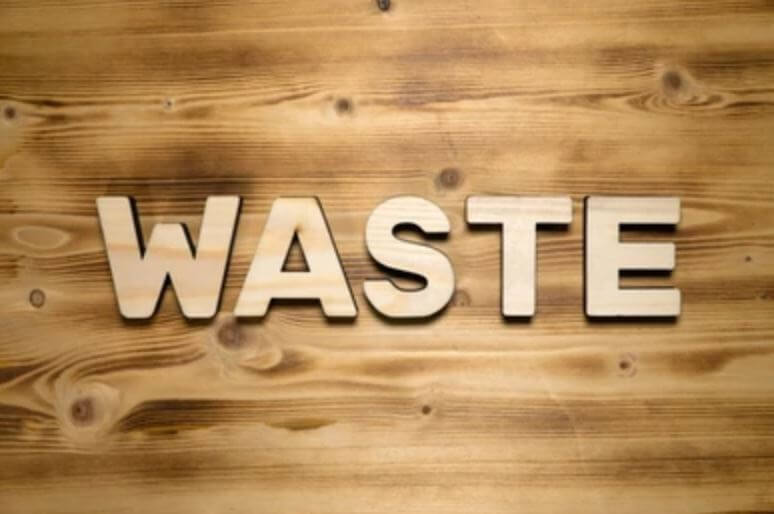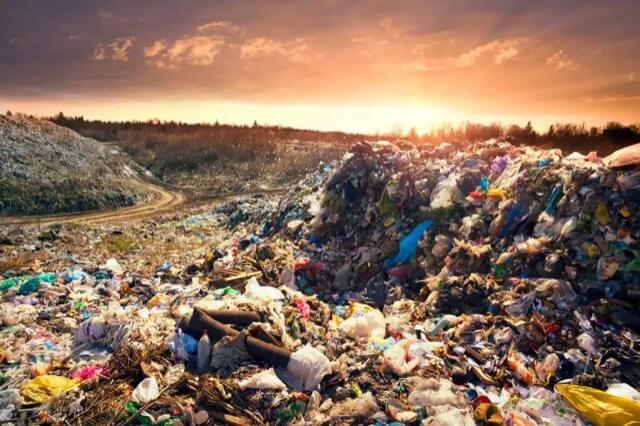This piece was written by FTMA’s Kat Welsh.
Why We Need to Stop Using the ‘W’ Word

The other day I was sat in a meeting, discussing circular economy approaches, specifically concerning what to do with wood waste from the vineyard and timber industry.
A point got raised about using the word waste, and that it is detrimental to how we frame things.
Having researched and written essays at university about the legal system – how damaging an impact word choice can have in defining community views of serious crime, abuse, sexual assaults, and victimisation of survivors – I knew the importance of words and how it manifests out into wider society. We may not realise it. In a global spread of the world wide web, 5.3 billion people have access to the internet, that’s 65.7% of the population. Social media has brought an arbitrary approach to expressing thoughts, opinions, versions of facts and even morally what we say about others. But, words have extreme power.
Our definition of words labels and defines pre-conceptions, behaviours, processes, items, and subsequently how they are viewed by others and their interpretation of the word without even a conscious thought.
Our presumptions when we hear the word waste, is an image of uselessness, failure or neglect – something that has no value. If you waste someone, or you are called a waste of space, that’s not good! And interestingly enough it’s labelling a vast problem that as a planet we need to tackle.

Our waste as a human species is polluting every corner of the globe. Worldwide, the waste industry is costing countries accumulatively in excess of $1 trillion. But how much of what is clogging landfill, leaching into the seas, or creating toxic environments, is reusable or should never have been identified as waste to begin with? How much of it is compostable that could be used to make soil? How much is valuable finite materials that could be reused? How much is recyclable? Have you tried googling ‘waste’ and seen what images come up? It’s confronting.
Once we see something as waste, or rubbish, our instinct is to bin it. And this is a major problem.
Dr Chris Lafferty, Research and Development Manager for Forest and Wood Products Australia (FWPA), knows the importance on being conscious of word choices. “When we describe something as a waste – it implies end of life and no tangible value left. And sets that definition into the minds of other people.” Dr. Lafferty believes this affects how regulating authorities and governing bodies view and make policies, and subsequently put in place procedures on how the states / country then relate to so-called waste.
Words matter. They shape our perceptions and attitudes towards a particular subject, and can either inspire action or complacency. Social language studies have found that the words we choose are “the primary symbolic medium through which cultural knowledge is communicated and instantiated, negotiated and contested, reproduced and transformed.”
When we use language that implies something is waste, we’re creating a mindset and a culture that anything left over from production is no longer useful. This can lead to a lack of innovation and creative thinking when it comes to reusing materials, which ultimately limits the potential of, in this case, the circular economy.
Circular economy, is about reduce, reuse, recycle. It aims to ultimately reduce waste and keep resources in use for as long as possible. This approach is increasingly important as we face environmental challenges such as climate change and pollution. Circular economy prioritises the creation of value from all resources. Using the word waste with all its implications, goes against the principles of the circular economy.
If we start re-labelling, we start taking responsibility for what goes in the trash. If we ditch the word waste from our vocabulary, this outlook could fit perfectly with the concept of circular economy.
ONE MAN’S TRASH
For timber, frame and truss, what we might label as waste is most definitely a valuable commodity. “Calling it a by-product, implies that while it may not be the preferred (primary) product / outcome, it can be used for other purposes and prove a value adding service somewhere with some lateral thinking,” Dr Lafferty says.
Re, is a bar in Sydney, whose whole ethos is using what others would be landfilling. Everything in the restaurant, the bar, the kitchen, the furniture, the décor, the food on the menu, is throwaways.
“We learned very quickly that we’re not really talking about waste. We don’t use the word waste in the bar we talk about rejuvenating and regenerating produce - giving something a new life that wouldn’t normally have it,” owner of Re, Matt Whiley says, “if we start pushing, other people start pushing.”
While we’re talking hospitality here, the same principals apply to wood leftovers.
Its immediate worth may have reduced, diminished, or ceased to function in its current location to its current owner, but in another location or to another business, it’s their treasure. Wood’s value for the next stage of life, is dependent on where it is, and options for what to do with by-products changes from business to business, with logistics of shipping it elsewhere, cost, or storage – let’s fully appreciate small businesses out there, with limited options, trying to focus on their primary purpose of manufacturing, struggling to deal with quantities of waste, and understand it can be hard.
Since being in contact with frame and truss manufacturers, I’ve heard all number of options for what’s left over and can’t currently be utilised any further – see how I avoided using the word waste there? Some of the solutions are genius. Ranging from supplying Men’s Sheds and prisons for timber projects, garden mulch, pet bedding, being turned into glulam, panelling, fire briquettes, biomass fuel in agriculture, the list goes on.
FTMA Supporting Partner, Stora Enso – a Finnish company with sites all over the world, producing pulp, paper and dedicated to manufacturing renewable products for packaging, wood construction, and biomaterials – is going ahead with making batteries with wood by-products. The future ripple from this, is not only to use valuable wood, but to also reduce the need for mining of graphite, a process which has unsustainable repercussions in many ways. Stora Enso has replaced the graphite in batteries, by using lignin from wood to create hard carbon.
The timber industry has always been based on the principles of resourcefulness and sustainability. However, by focusing on creating a circular timber industry, we can take these principles to the next level. By embracing circular attitudes and adjusting our vocabulary, we can create a culture of innovation and resource efficiency that benefits everyone involved, from the workers on the production line to the environment at large. So let’s start seeing by-products and leftover materials for what they truly are – valuable resources that can help create a brighter, more sustainable future.
The time for digging a massive hole in the ground and chucking out everything we don’t want to think about again, is over – time to get serious about it. Start with the power of words – if you use waste, maybe it’s time to put it in the bin.
Our Principal Partners



